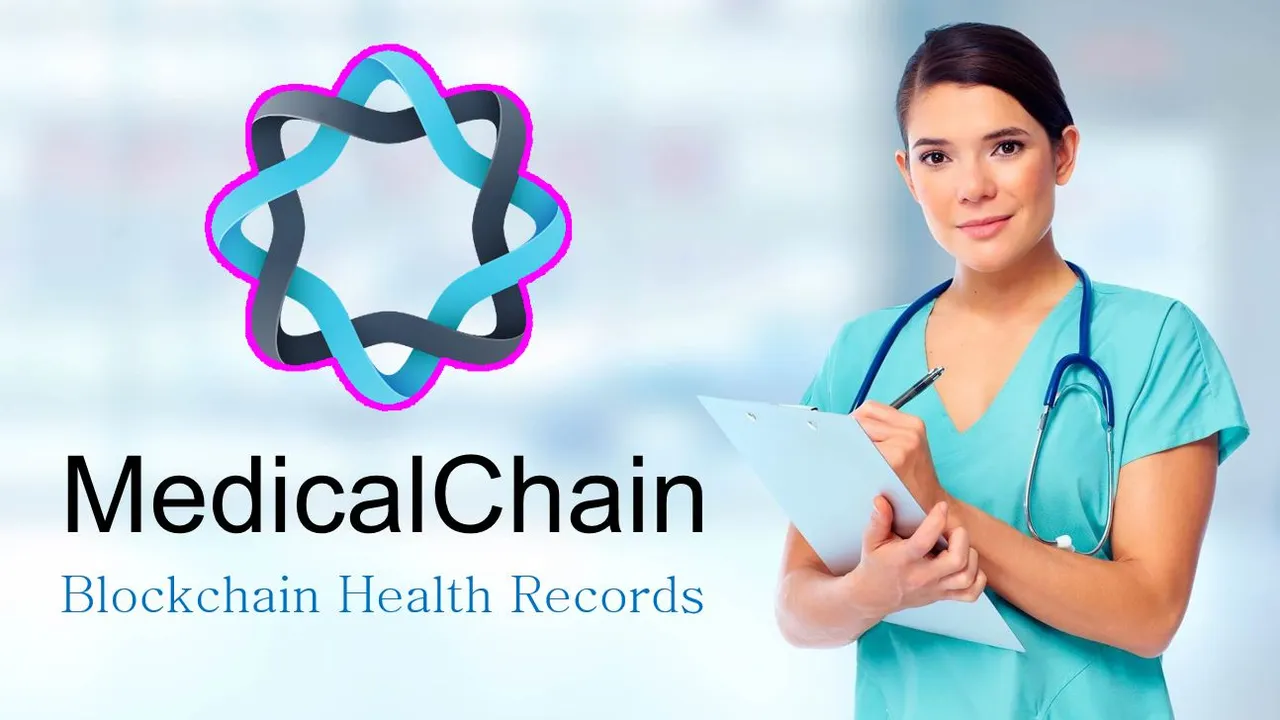
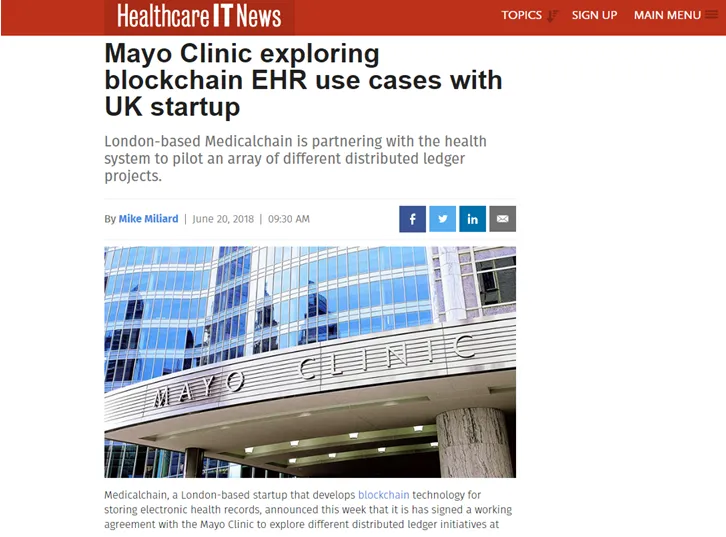
Recently Mayo Clinic, the American Healthcare Giant, partnered with a Blockchain company called MedicalChain to pilot an array of different projects, starting with a decentralised, secure patient database.
In this early stage of Blockchain technology, any project with real use case and a partnership with a giant enterprise is definitely worth checking out, and when I looked up the MedicalChain project, I was surprised to find them at a very low marketcap of only $11.7 million, sitting at 388 on the CMC rankings.
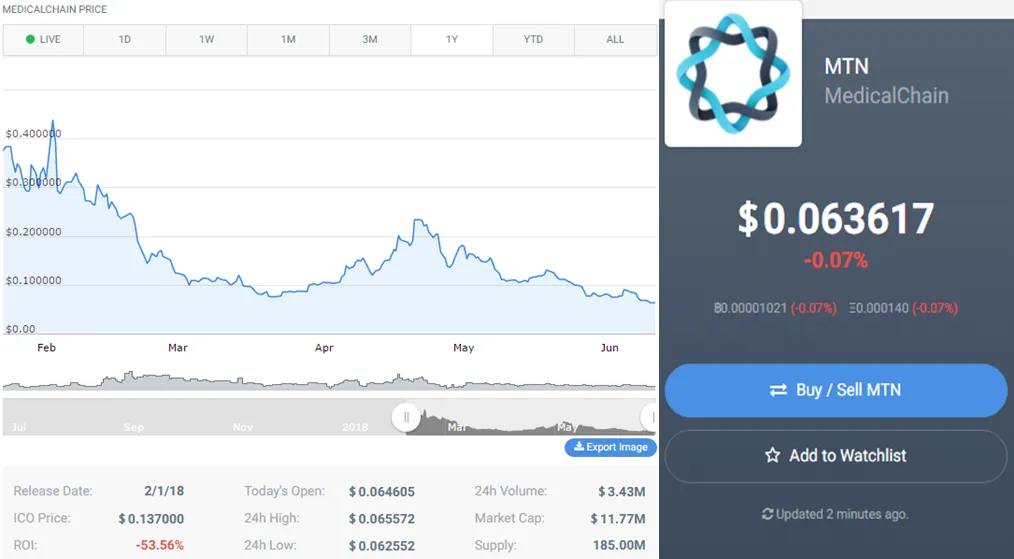
In fact, the token prices is at an all time low, down 70% from their all time high, despite the big news of the Mayo Clinic partnership less than a week ago. The negative price action has of course been because of the market crash, and it’s not isolated to this project, but at a ranking of 388 on CMC and a marketcap of only $11.77. I do think this project is very undervalued and wanted to take a deeper look into it.
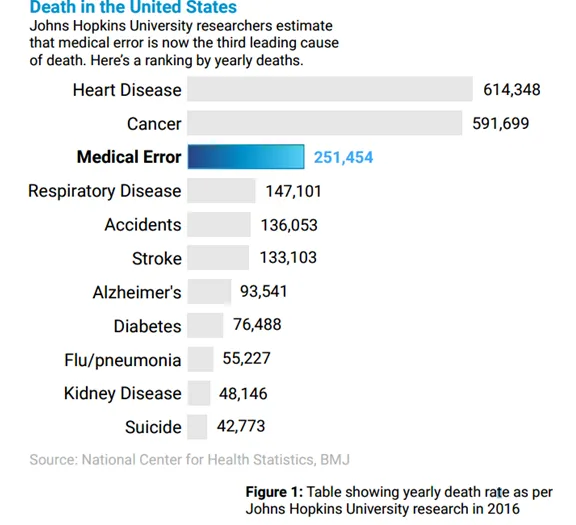
According to a research by John Hopkins University, the third leading cause of deaths, after heart disease and cancer, is actually medical errors! Medical errors e.g. prescribing the wrong medication, accounts for more deaths than accidents, strokes, diabetes, pneumonia or suicide.
The reason why medical errors are so prevalent is not because of the incompetence of doctors, but because medical instituions work in silos. A patient’s family doctor may know that he has an allergy to a medication, but if that patient was admitted to hospital, the hospital doctors may not know that and administer the wrong medication. Medical practices, do not share their information, and so the scattered pieces of patient’s data often result in poor and bad medical decisions.

Imagine if the healthcare system could have a common and secure database where, every party involved in the patient’s care, from the local doctor, to the hospitals and pharmacies, even the insurance companies and telehealth consults could have access to the health profile of a patient. How much easier would communication be.
Furthermore, because it is Blockchain-based and decentralised, the data would be secure.
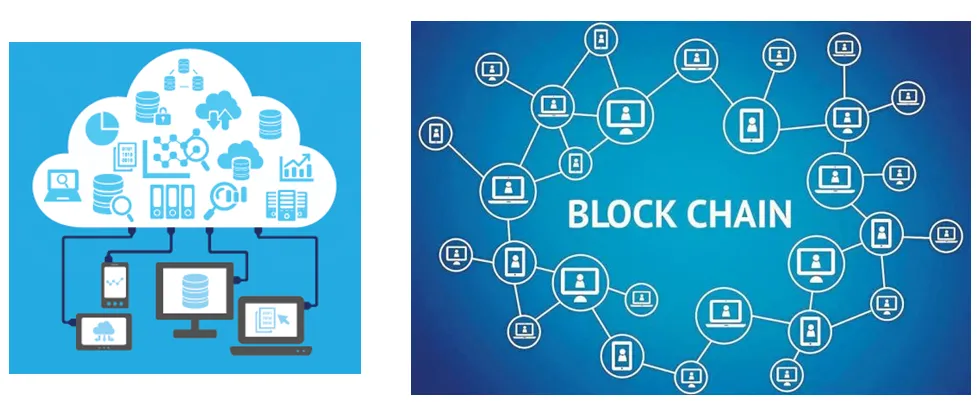
Currently medical institutions spend thousands to millions of dollars every year, to secure patient’s information securely. The health profile of any individual is one of the most private and sensitive information, and on the black market, a patient’s health information is currently worth 10x more than their credit card.
Furthermore, it is not just stealing the information, it is also modifying the information. Insurance fraud is estimated to cost more than $40 billion per year.
The best medical data storage services currently are cloud servers. Cloud servers, store the information in a cloud, that is monitored by a central server. However, even Cloud storages are centralised, meaning there is a single point of hacking for a hacker to access not just a few but huge amounts of patient’s data. This has happened several times in history. Cloud servers keep trying to update their security features, and hackers keep trying to come up with new and creative ways to hack the system. It’s not a permanent or secure solution at all.
The safest and most secure technology to store patient’s data then is through the Blockchain, where the information is decentralised and literally unable to be hacked. It is also not central to a single source, meaning the data cannot be modified, or lost. Furthermore, as an additional layer of security and privacy, Medicalchain encrypts all the information so only the individual is in control of their data.
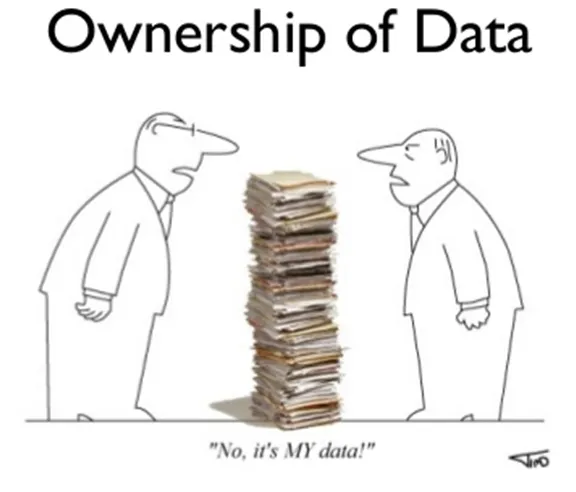
Ownership of personal data is a growing concern today. Patients often tell their doctors things that they don’t even confide in their spouses. But do you know that when you go to a hospital and a profile is created for you, that personal information of yours belongs to the hospital and not to you? After you were discharged from the hospital, if you went back requesting to read your notes, you would have to go through a lengthy process of applying for freedom of information and permission before your notes would be granted to you. In contrary, a new intern in the hospital, would have unlimited access to your most personal information 24/7 without your permission. That is because the information does not belong to you.
But with MedicalChain, your personal information belongs completely to you and professionals can only access it with your permission. That, I believe is the way it should be.
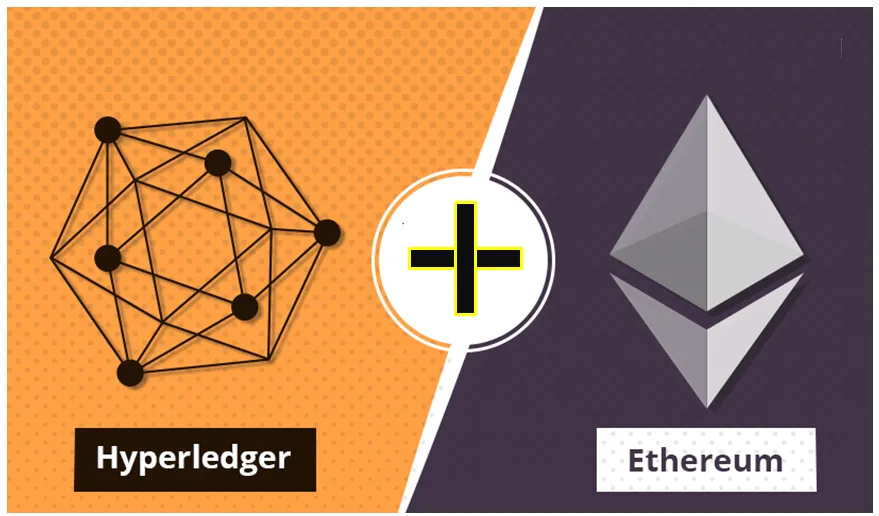
In terms of the actual Blockchain structure, Medicalchain will be employing a dual Blockchain structure using both Hyperledger and Ethereum.
Hyperledger as a network is permissioned based, and also very confidential, flexible and scalable. It suits medical information very well as it provides the privacy required for the sensitive data. Having multiple layers of permissions, it also means that patient’s are able to control what parts of their data is accessed by which doctors.
Ethereum will be used to manage all the accounts and transactions. It is suitable for the task because of it’s use of smart contracts, and the transparent and secure nature of the Blockchain.
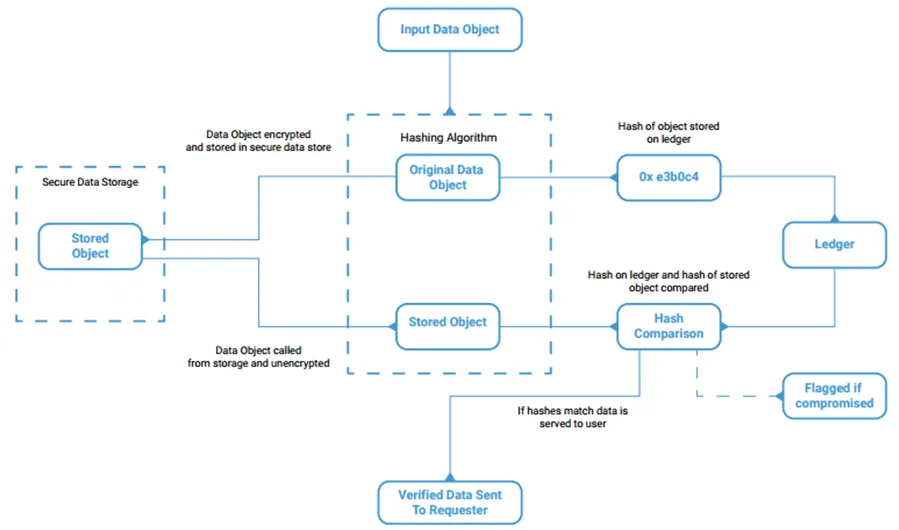
This rather complicated looking diagram represents the encryption cryptography.
For those who are more technically inclined, you can examine it in detail in the whitepaper, but a simple summary of it is all patient’s data will be stored in a secure data store, and a hash of that data is stored on the ledger. Decryption of that data can only be done by the patient’s private key, so not even Medicalchain staff can see that information.
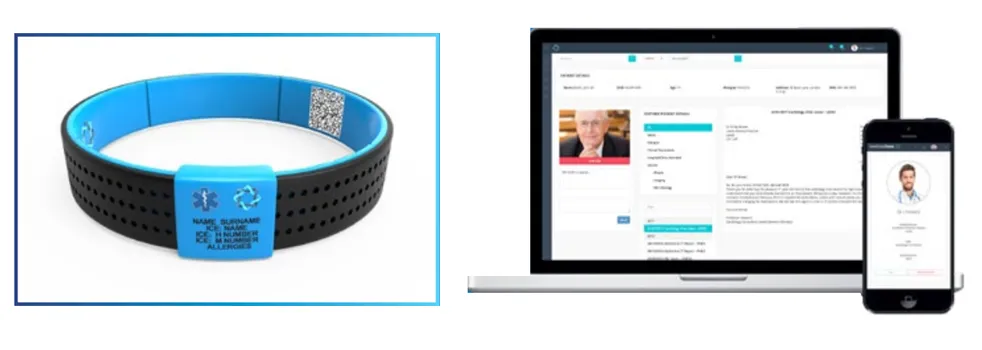
There are some medical conditions where a patient may not be in the position to grant permission. This could involve conditions like epilepsy or heart attacks or accidents. Medical Chain have actually developed their own hardware bracelet that patients can wear for emergencies, so that in the case of an emergency, 2 specially authorised doctors in an emergency department could agree to access the data. And not the whole data will be available, only the emergency data would be accessible. This braclet concept is actually a common practice already for patient’s who suffer from serious illnesses like epilepsy and know they may be suffer a seizure etc.. however the braclets these days is a printed list of their medications and allergies only. So this bracelet would be much more informative. My only negative comment is, it doesn’t look very attractive, hopefully in future developments they will release a more aesthetically appealing accessory.
The software running the program will be easy to install and use on both computers as well as mobile phones as you saw in the video clip earlier. As long as there is internet access, the technology can be used. There will be no need for paper documents if a service uses MedicalChain.
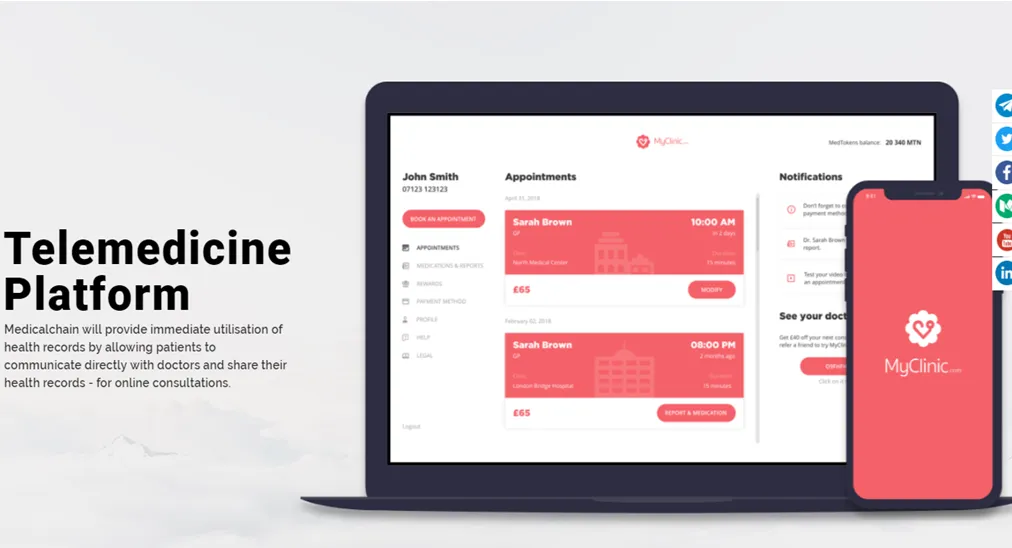
Besides providing medical data storage and security. MedicalChain will be a platform to launch their own services, and the first application they have created is a Telemedicine service called MyClinic. In this app, patient’s do not need to leave their home to see a doctor, they can simply do a teleconference and chat with the doctor over the video call, who has their medical data from the Blockchain and can treat them accordingly.
Obviously Telemedicine cannot be used for all situations, but it can be very helpful for follow-up appointments and simple reviews. It would save both the health system as well as patients a great deal of time and money.
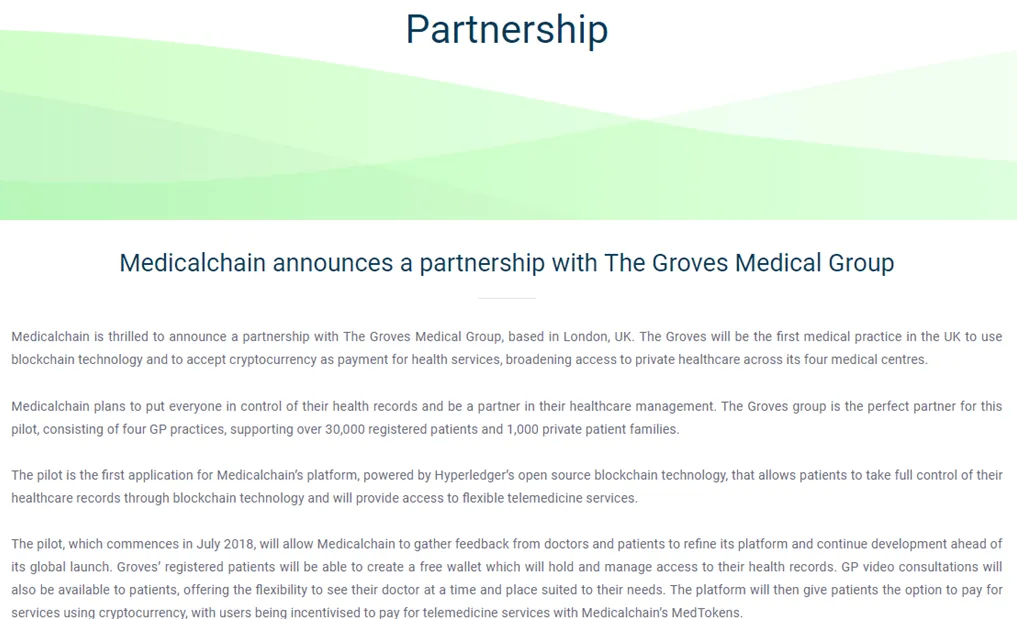
The Groves medical group in London will be the first medical group in the UK to pilot the MyChain application in July 2018, and they will also accept cryptocurrency as payment. They are a big organisation with over 30,000 patients, and they are under the NHS system. To those who do not are not familiar with the term, NHS is the national health funding system for the UK, and MedicalChain is compliant or compatible with the system.
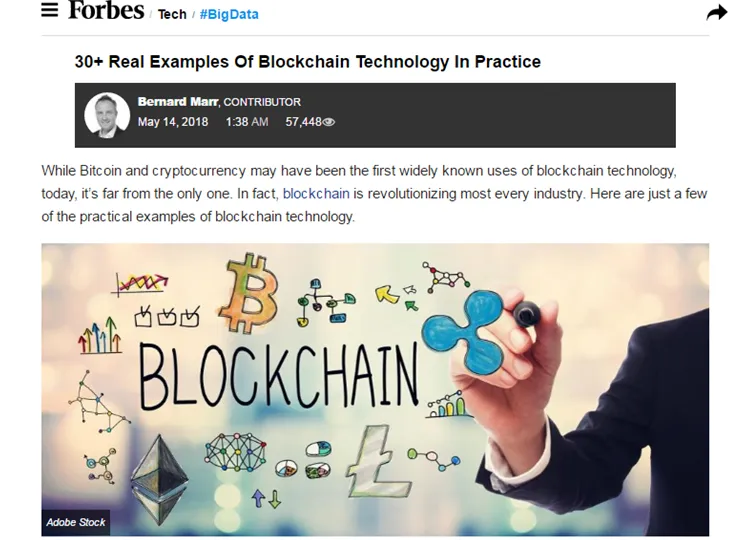
Recently Forbes in an article outlining “30+ real examples of Blockchain Technology in Practice” listed MedicalChain as one of the examples.
So between a partnership with Mayo Clinic in America, Groves Medical Group in London and now a favourable Forbes article, this project is gaining some serious use case and traction.

This is the team behind the project. The CEO is actually a doctor who works in the medical field and is aware of the problems faced on the ground. The rest of the team come from various backgrounds e.g. business, legal, communications, web security and of course developers and engineers. It’s a big team, that’s well balanced in roles and quite a few of their members have a lot of experience in their respective fields.
On a whole, they come across as a solid and intelligent team.
The significance of this whole project being driven by a doctor, is that it is clinically led. So many Blockchain projects are technically led by developers, who have no idea what the business or medical or supply chain enterprises really need, and that’s really one of the biggest barriers to mass adoption of Blockchain. So this project was developed by a doctor who saw a problem in the field and came up with a solution for it. That’s why it’s working and that’s why even though they are a very young project, less than a year old, big health institutions like Mayo Clinic, and the Groves Medical Group are jumping on board. I think the concept of this project has a lot of potential.
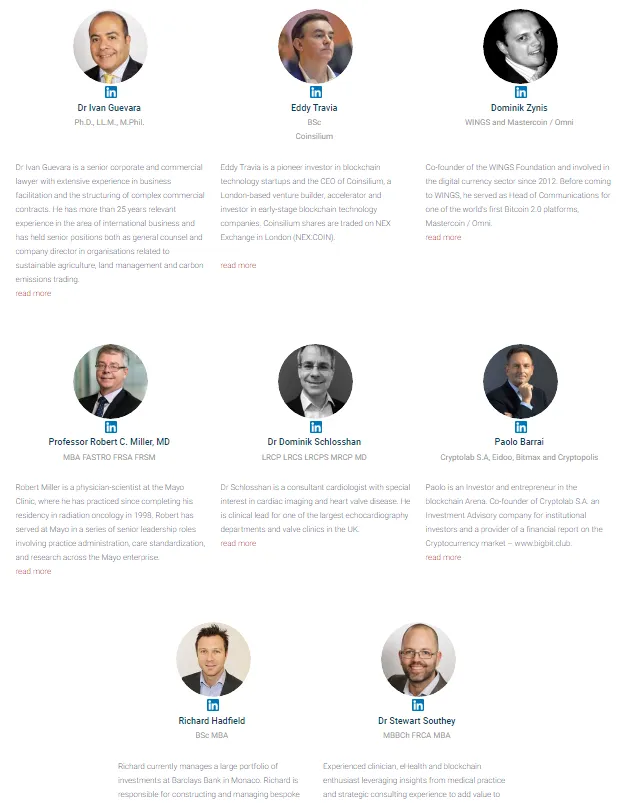
These are their advisors, it includes consultant physicians, blockchain pioneers and entrepreneurs, investment managers and a medical practice strategic consultant and a lawyer.
So again a very diverse and well balanced group.
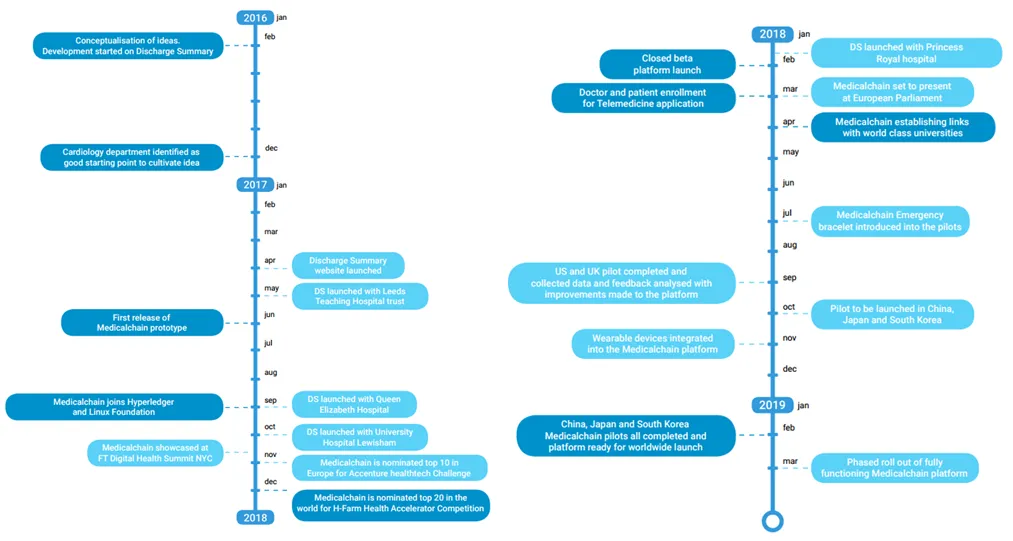
This is their roadmap, key milestones to take note of include the medical emergency bracelet that will be introduced into the pilots in July 2018 (so next month). Rest of Q3 will see the pilot launched in China, Japan and South Korea and completed in US and UK. And it is only in March of 2019 that we will see the roll out of the fully functioning MedicalChain platform.
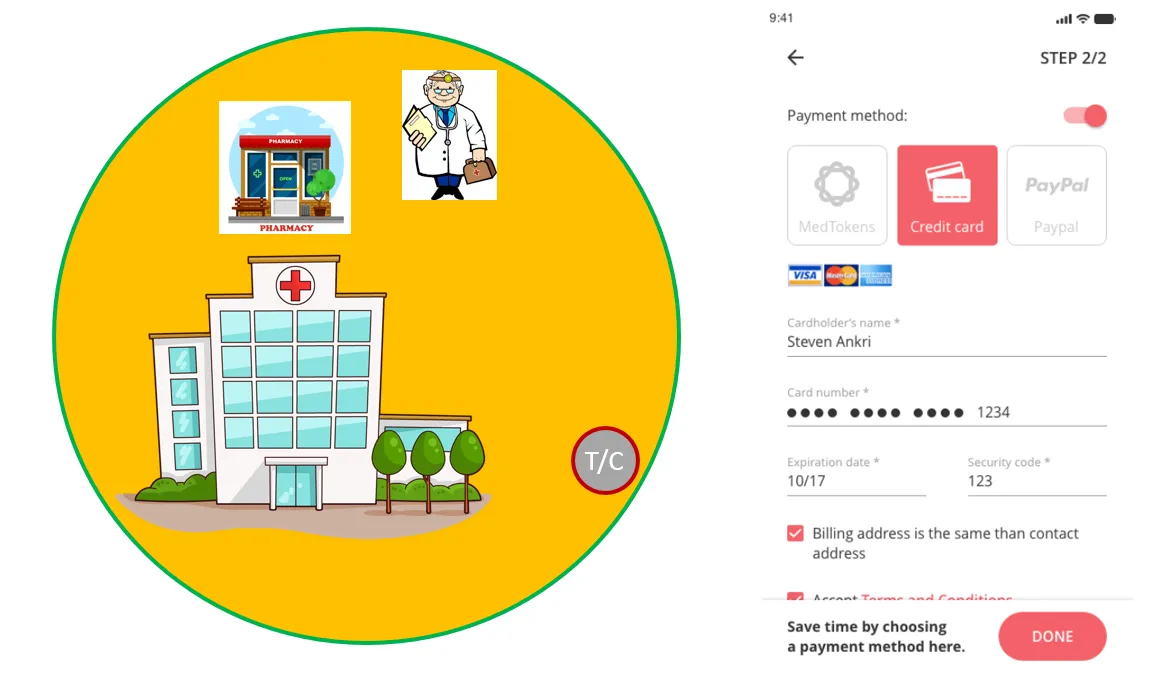
One thing to consider as token investors is the token use. As token investors we are invested in the tokens, not the company. So if the company succeeds but there is not token use, we don’t get good returns. Like any currency, a token value is determined by demand, the more it is used, the more valuable it is.
Here I want to explain to you MedicalChain’s token use, and its not a bad or good, it’s just different and something you should understand if you are going to invest in this project.
We’ve reviewed quite a number of blockchain ID based projects e.g. Ontology, THEKEY etc.. with those projects, everytime an enterprise (e.g. bank) wanted to use the personal data, they would have to pay some tokens. So token use was 100% tied to the technology. Medical Chain is different.
So if we consider the parties who will use MedicalChain’s technology, e.g. hospital, neighbourhood doctor etc.. every time the patient is allowing the doctor to access their information, the blockchain technology is used to extract and decrypt the data. However, even though the technology is used, no token use is required. That whole process is free. In otherwords, the token use is not tied to the technology use.
The main income for the project is not from existing healthcare enterprises, but from their own healthcare initiatives e.g. the teleconsultation service. To use the teleconsultation service, patient’s will have to pay of course, and Medtokens are one form of payment. Patient’s can also choose to pay in credit card or Paypal. So token use is optional for a medical service, not the blockchain use.
Now MedicalChain is aiming to introduce more initiatives for token use, e.g. a partnership with research or insurance companies, where those companies will have to pay the patient for using their data. The patient of course has full control of their data and can choose to opt in or out of these projects.
The long term goal of this project is to create more and more healthcare initiatives and form an ecosystem.
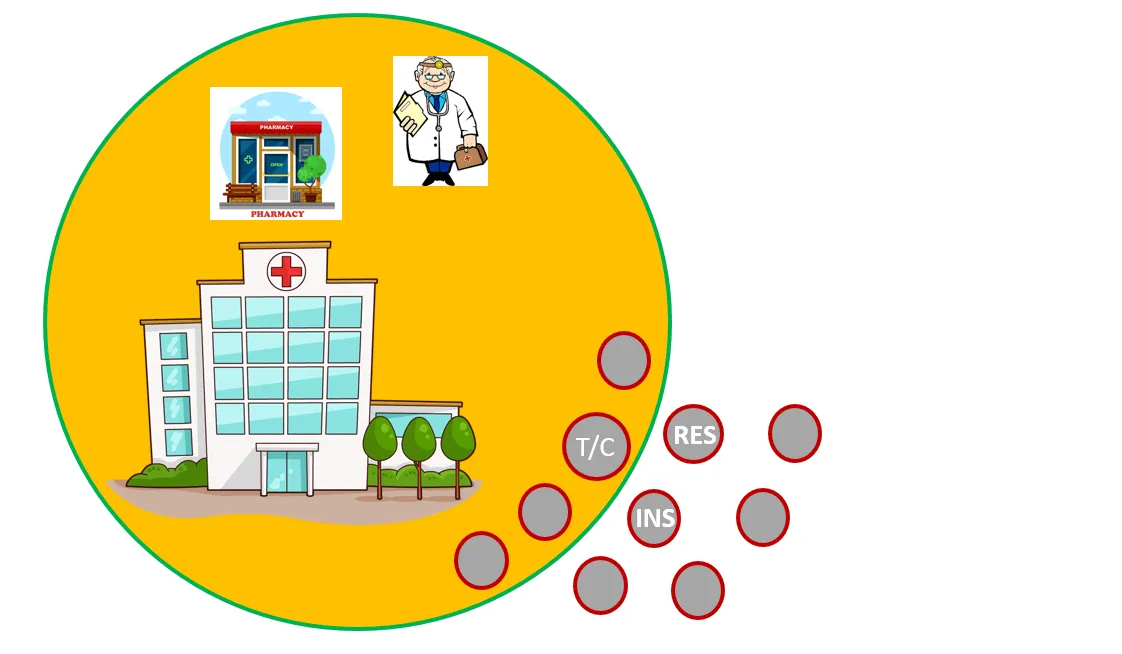
There is technically speaking no limit to that size of the ecosystem, they could have 10 projects or a thousand projects on it, and that could result in a potentially large use case for the tokens. However, the contrary might also happen, because again some initiatives like the teleconsultation will offer patients the options to pay in fiat currencies. The truth is no one can tell how the token use will be.
The existing healthcare agencies e.g. clinics or hospitals who wish to use this technology will have to pay percentage fees. For e.g. if a GP charges $50/ consult, they might take $1 of that fee etc.. the rates are not determinied yet, and it is also not determined yet whether that fee is paid in fiat or crypto. So again, there may be no token use. Moving forward, I highly recommend token investors to pay attention to these news.
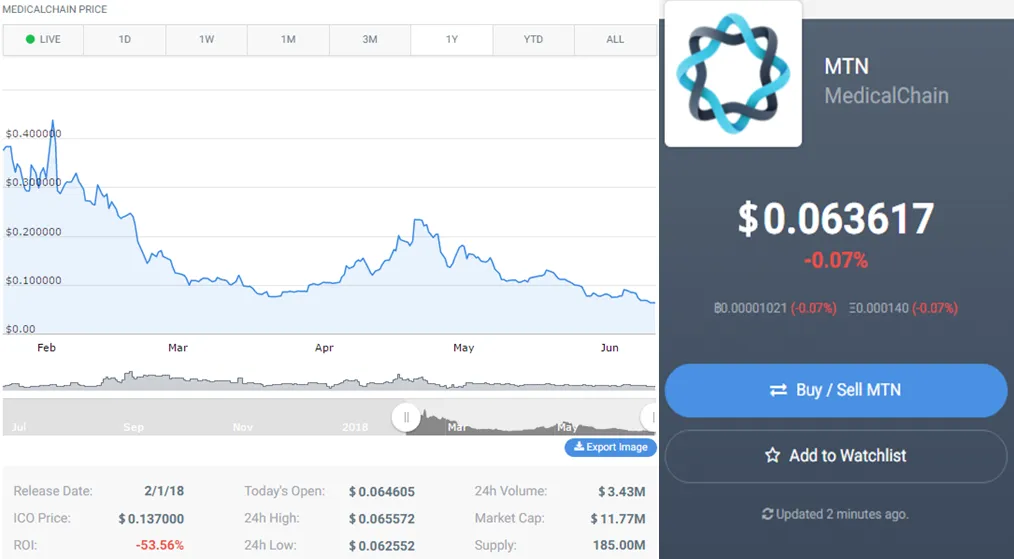
Finally rounding up with a look at the token price. The token is currently sitting at an all time low of $0.06, that’s over 70% down from their all time high, and the fact that they have real use cases and big enterprise partnerships makes it a project worth considering.
From a token investor point of view, I would have liked to see more token use. There is potential for the token to have demand, especially if their eco-system takes off, but I feel there is also potential for the token not to be used and that makes me nervous as a token investor. But at such a low marketcap, its most likely this coin will see growth in the medium to long term. It’s just whether it will give the biggest returns. But overall great project, great use case. Definitely a much needed solution to the healthcare industry. If it ever comes to my area, I will definitely consider using it as a patient.
Let us know in the comments section below what you think of MedicalChain, do you like it or not? Are you concerned about the token use or not?
As always, none of this is professional advice, this is just my personal opinions and ramblings. Definitely do your own research and make your own decisions.
That’s it for me guys, have a wonderful day and I will catch you guys with another review very soon!